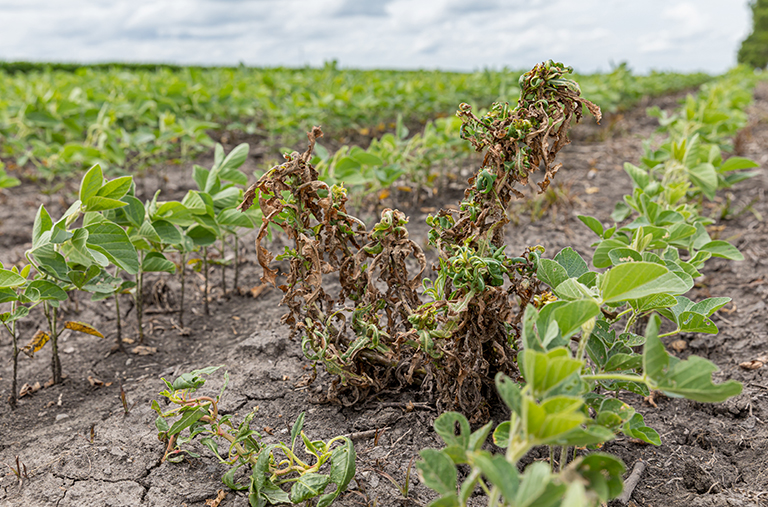Dicamba is a highly volatile herbicide with a propensity to move onto off-site locations. Brand names include XtendiMax (a newer formulation made by Monsanto), FeXapan (by DuPont), and Engenia (by BASF). According to the National Pesticide Information Center, more than 1,100 herbicide products contain this herbicide. The U.S. Food and Drug Administration (FDA) recently approved Monsanto-made, dicamba-resistant crops, which prompted some farmers to spray the herbicide on crops—a use for which it is not approved. Some of these products then volatilized, becoming airborne and moving onto other farmers’ properties, causing tremendous yield loss for their crops. Experts now estimate that more than 3 million acres of soybean farmland have been damaged by dicamba. Many farmers are filing lawsuits against manufacturers like Monsanto and DuPont to hold the responsible parties accountable.

DICAMBA HERBICIDE PROBLEMS
Crop damage usually occurs days after the application of the herbicide, but some damage can take weeks to appear. Most often damage from herbicides will not be isolated to a small area. Checking adjacent crops and if possible, crops of a different species, can help establish if the damage is from an herbicide.

